South Carolina state (USA)
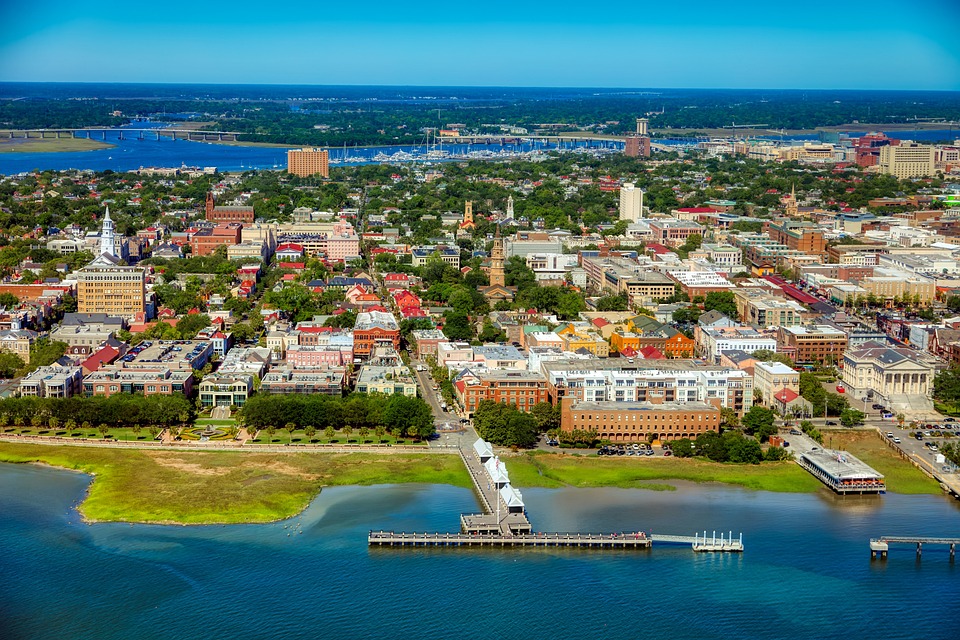
Location
The state of South Carolina, known for its history, beautiful beaches, and Southern hospitality, is located in the southeastern United States on the Atlantic Ocean. It borders North Carolina to the north, Georgia to the southwest, and is bounded by the Atlantic on the east. The total area of South Carolina is about 82,933 km², making it an average-sized state in the country.
The state capital is Columbia, which also serves as a cultural and educational hub. Other important cities include Charleston, renowned for its colonial architecture and port infrastructure, and Greenville, which has a growing industrial base and a well-developed transportation network. Its location on the Atlantic coast provides significant advantages in port development and tourism.
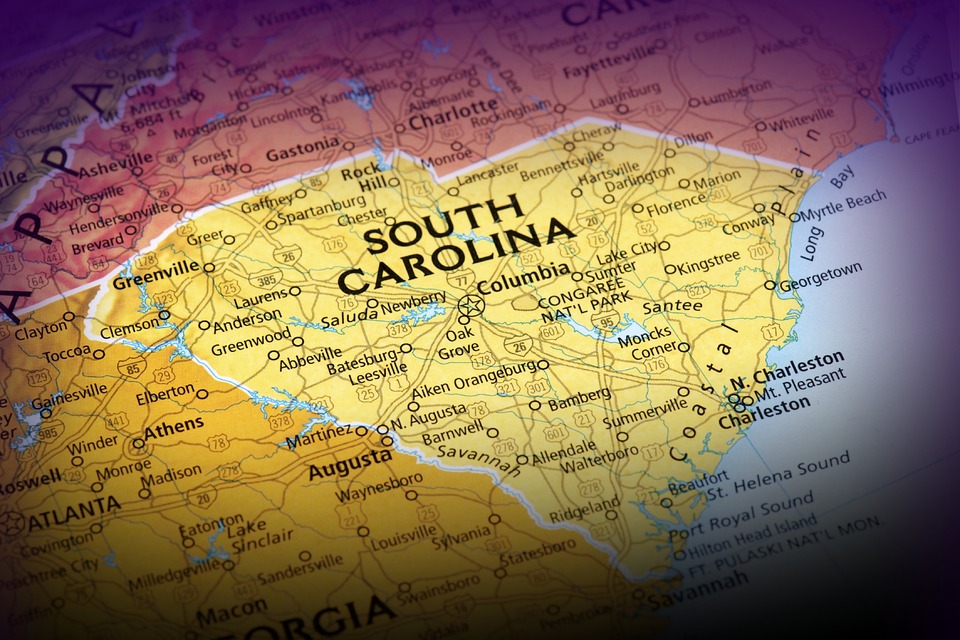
Climate and Landscape
South Carolina has a humid subtropical climate with hot, humid summers and mild winters, making it attractive to those who enjoy warm seasons.
Average summer temperatures range from +28°C to +34°C, while winter temperatures range from +4°C to +10°C.
The summer months often come with heavy rain and high humidity, especially in coastal areas. The state experiences seasonal storms and hurricanes, which can occasionally be severe.
The landscape of South Carolina is diverse, featuring coastal plains, the rolling hills of the Piedmont, and the Appalachian Mountains in the northwest. The coastline is home to popular beaches like Myrtle Beach, a favorite destination for locals and tourists alike. The state also has numerous rivers and swamps, providing unique ecosystems for local flora and fauna.
Population
South Carolina is home to approximately 5.2 million people, making it a medium-populated state in the U.S. Most of the population is concentrated in major urban areas, such as Columbia, Charleston, and Greenville.
The state is ethnically diverse, with large African American communities (about 27%), white residents (about 63%), as well as Latino and other ethnic groups.
South Carolina has a strong African American cultural heritage, which continues to play a significant role in the state’s art, music, and religious traditions.
The state also attracts many migrants from other parts of the U.S., particularly retirees seeking a warm climate and relaxed lifestyle. South Carolina is actively developing, and cities are experiencing a growth in young residents coming for educational and career opportunities.
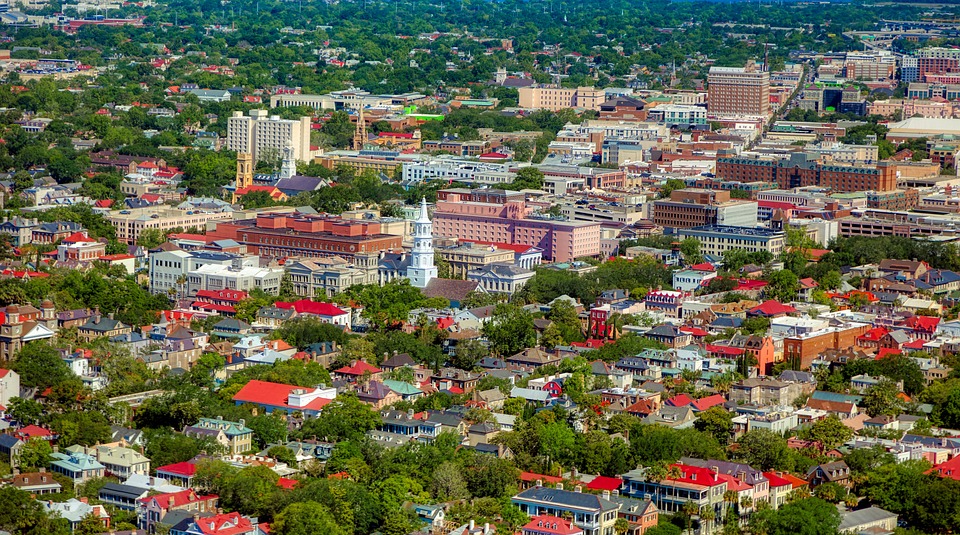
Crime
The crime rate in South Carolina is above the national average, especially in larger cities like Charleston and Columbia. According to statistics, there are about 530 violent crimes per 100,000 people, including robberies, assaults, and homicides. Despite this, South Carolina continues to work on reducing crime through enhanced police patrolling and improved safety measures in urban areas.
As in many states, the crime rate varies greatly by neighborhood. Some urban areas are considered less safe, while others, particularly in suburban areas and smaller towns, have significantly lower crime rates. Social initiatives play an important role in addressing crime, with programs focused on youth development and providing educational and career opportunities for residents.
Economy
South Carolina has a dynamic economy based on tourism, industry, and agriculture. The state is particularly known for its manufacturing capabilities, with facilities like those of BMW and Boeing providing a significant share of jobs and income. Tourism is also a vital sector, thanks to popular coastal resorts and historic sites like Charleston. Key sectors also include healthcare, education, and financial services.
The minimum wage in South Carolina is $7.25 per hour, which aligns with the federal minimum.
The average household income is around $57,000 per year, slightly below the national average, but the lower cost of living compensates for this. The poverty rate is approximately 13.8%, while employment remains high due to the diverse economy and low tax burden on businesses.
South Carolina for Business
South Carolina is an attractive state for business due to its economic growth, favorable tax conditions, and diverse industries. The state is home to major companies like BMW, Boeing, and Michelin, which have significant manufacturing operations and create thousands of jobs. The state also hosts Volvo Cars, which has a plant in Berkeley County, and Denny’s, headquartered in Spartanburg. The strong presence of industrial giants helps attract other companies and fosters a network of suppliers and supporting industries.
Advantages of starting a business in South Carolina:
- Low taxes. The corporate income tax rate is only 5%, one of the lowest in the country. Additionally, the absence of a personal income tax can be an extra incentive for small business owners.
- Incentive programs. The state offers tax breaks and financial support to new companies, especially in manufacturing, transportation, and technology sectors. There are programs that encourage business expansion and investment attraction.
- Affordable workforce. Labor costs are lower than in many other states, and the low unemployment rate ensures a steady supply of workers.
Disadvantages of starting a business in South Carolina:
- Lack of highly skilled workers. In rural areas or small towns, finding employees with the necessary skills can be difficult, forcing companies to invest in training.
- Susceptibility to natural disasters. Hurricanes can cause infrastructure damage and disrupt business operations, especially in coastal areas.
- Infrastructure distribution. Some regions may have limited access to modern transportation networks and other infrastructural facilities.
Tax benefits and potential problems:
South Carolina provides tax incentives for new businesses, including corporate tax discounts, investment tax credits, and job creation grants. Additionally, companies engaged in research and development may qualify for special tax credits.
However, some companies may face bureaucratic hurdles when obtaining permits or meeting environmental regulations. This can delay the business startup process and increase costs.
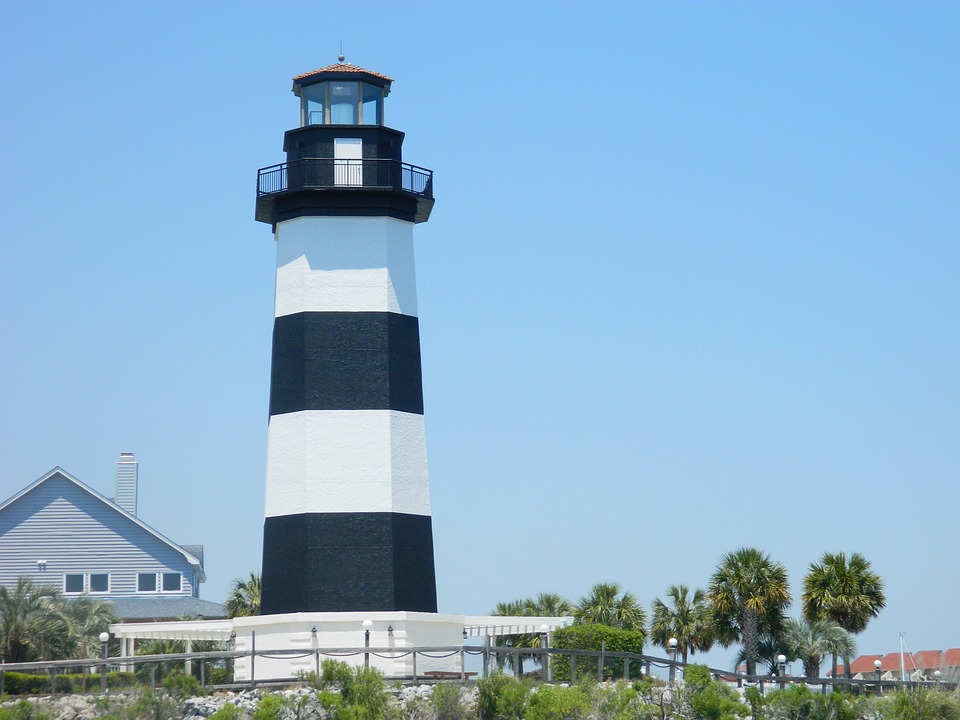
Real Estate in South Carolina
The real estate market in South Carolina attracts buyers and renters due to affordable prices, especially compared to other U.S. states. Rental and purchase prices can vary significantly depending on the location, but overall they remain accessible.
Renting a one-bedroom apartment in different cities in South Carolina:
- Charleston: Renting a one-bedroom apartment costs an average of $1,400–$1,600 per month, depending on the proximity to downtown or the beach.
- Columbia (the capital): Prices here are slightly lower, ranging from $1,000 to $1,200 per month. This is an attractive option for students and young professionals.
- Greenville: Rental prices are around $1,200–$1,400 per month. The city is actively developing, which affects the rising costs.
- Myrtle Beach: Renting can cost between $1,100 and $1,500 per month, especially closer to the beaches. This popular tourist city sees rental price variations depending on the season.
Buying a house in South Carolina:
The average home price in the state is about $280,000–$300,000. In cities like Charleston, the average price can reach $350,000 or more due to the area’s high attractiveness and developed infrastructure. In smaller towns such as Spartanburg or Florence, a house can be purchased for $200,000–$250,000, making it a more affordable option for families with average incomes. The cost of real estate also depends on the lot size, building condition, and proximity to key amenities like schools and shops.
Ecology
The environmental state of South Carolina remains stable and generally favorable. The state actively invests in conserving natural resources and promoting sustainable development programs. Special attention is given to maintaining the cleanliness of the coastline and preserving coastal ecosystems, particularly in tourist areas like Myrtle Beach. Additionally, there are initiatives to develop alternative energy sources, including wind and solar power plants.
However, like many other states, South Carolina faces air quality issues, especially in industrial areas. Periodically, larger cities like Columbia experience increased pollution levels due to emissions from transportation and factories. Despite this, environmental organizations work to reduce pollution levels and implement programs for urban greening and lowering greenhouse gas emissions.
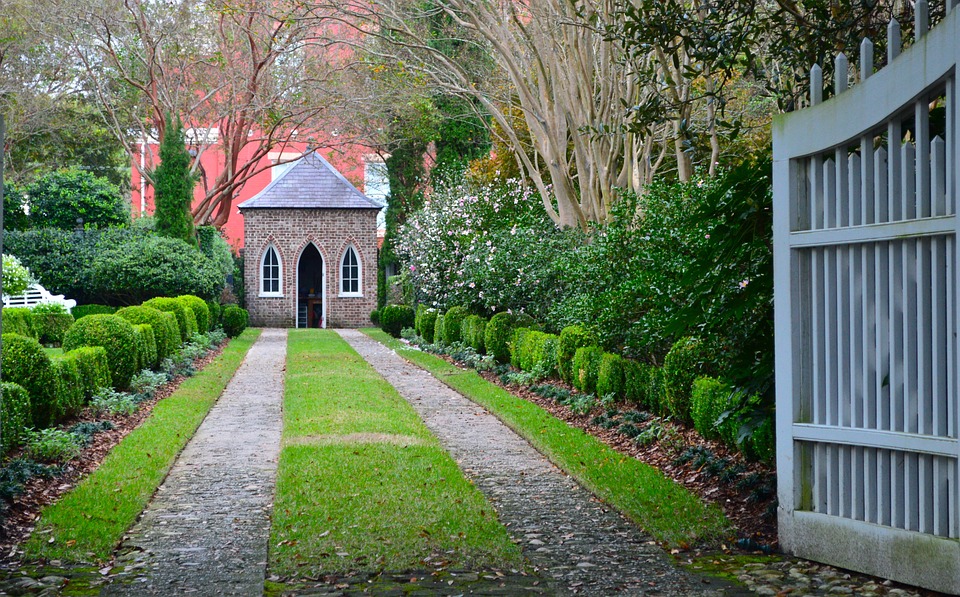
Notable Attractions
One of the most famous destinations is Charleston, a city known for its colonial architecture, narrow streets, and numerous museums, such as the Charleston Museum and Fort Sumter. Charleston also offers waterfront promenades and boat trips, providing beautiful views of the bay.
On the coast, popular beaches like Myrtle Beach are famous for their wide sandy shores, entertainment options, and numerous hotels. Another top destination is Congaree National Park, home to ancient forests, unique wetlands, and rich wildlife, including rare bird species. A unique natural attraction is also the Aynor Forest, known for its eco-trails and hiking routes.
Equally captivating are cultural events such as the annual Flower Festival in Spartanburg and the International Sand Sculpture Festival in Myrtle Beach, which draw not only locals but also visitors from different parts of the country.
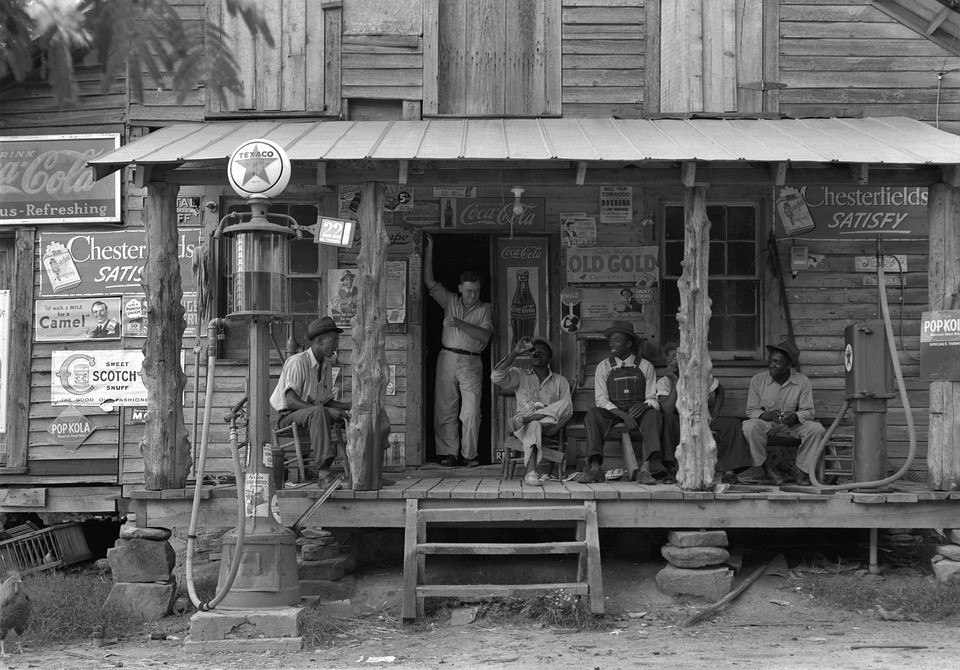
Why People Move to South Carolina
South Carolina has become increasingly popular for relocation in recent years due to its warm climate, low cost of living, and favorable tax conditions. Many people, especially retirees, choose the state for its mild winters and affordable housing. The state’s economic growth also plays an important role, with numerous job opportunities in manufacturing, tourism, and healthcare, making it appealing to young professionals and families.
The state also offers a variety of educational institutions, including universities, which attract students and young families. Additionally, low property and business taxes provide favorable conditions for entrepreneurship.
Possible Drawbacks of Living in South Carolina
While South Carolina offers many advantages, there are certain drawbacks that residents may face. Here are the main ones:
- Climate and High Humidity
Summers in South Carolina are hot and humid, which can be uncomfortable, especially for newcomers not accustomed to a subtropical climate. Humidity levels often exceed 70-80%, accompanied by heavy rainfall, which can create challenging living conditions. High humidity also encourages the spread of insects like mosquitoes, particularly in coastal areas and near bodies of water. - Hurricanes and Natural Disasters
Due to its location on the Atlantic coast, South Carolina is prone to seasonal hurricanes and tropical storms, which can cause significant damage to buildings and infrastructure. Homeowners and businesses often have to pay for additional disaster insurance, which can be costly. Even less severe storms can lead to power outages and disrupt communications. - Infrastructure Challenges
In some areas of South Carolina, particularly in rural regions, infrastructure may be underdeveloped. Roads can be in poor condition, and public transportation is limited or nonexistent. This creates a need for a personal vehicle, which can be an added financial burden for new residents, especially if they are used to convenient urban transit. - Access to Healthcare
In rural and remote areas, access to medical services may be limited. Clinics and medical centers are mainly located in cities, making it challenging for those living outside urban areas to obtain medical care. This can be a serious issue for elderly people or those with chronic health conditions who require regular monitoring. - Job Market and Average Income
Although South Carolina is actively developing, the average income in the state remains below the national average. This can be a limiting factor for individuals seeking high-paying jobs, especially in specialized fields. Young professionals often face challenges in finding career growth opportunities, especially in smaller towns or rural areas. - Air Quality Issues
In some industrial areas, such as Columbia, air quality may be poor due to emissions from factories and vehicles. This can impact residents’ health, especially for those with respiratory illnesses, and trigger allergic reactions. Poor air quality is a serious issue for residents in industrial zones who spend time outdoors or have children.
Table of Contents